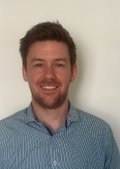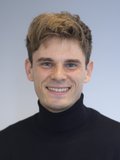People
This page lists the core faculty affiliated with RURPE. In addition, we rely on the assistance of a number of highly talented research assistants and on collaborations beyond Aarhus University.
Lasse Lindekilde, Chair
Lasse Lindekilde is Professor at the Department of Political Science, Aarhus University. He holds a PhD from the European University Institute. His research is focused on violent radicalization and the implementation and effects of counter-terrorism policies. He has published more than 40 papers and book chapters in this domain. His work is interdisciplinary, linking insights from political science, political sociology, criminology and social psychology. Methodologically he has published work building on field work, survey research and experimental techniques. His research is funded by among others the ERC, the MINERVA programme, the Danish Research Council and AUFF. As a returning visiting fellow at UCSB he has conducted experimental research on the effects of small group deliberation on the radicalization of attitudes and action preparedness. He is currently undertaking research looking at the efficiency of pre-event communication campaigns aimed at interdiction and mitigation of violent extremism, and early risk factors of radicalization. He is PI on the RARE project and co-PI on ROPH, CPR and SER-CVE.
David Parker, Deputy Chair
Dr. David Parker is an ERC Marie Skłodowska-Curie Fellow at the Department of Political Science, Aarhus University. His research focuses on anti-radicalisation communication strategies in Denmark and the UK, assessing how communication can be improved and how individuals who are vulnerable to radicalisation can be more effectively reached. Prior to his work at Aarhus University, he worked at the Department of War Studies at King’s College London, where his research focused on preventing, interdicting and mitigating lone-actor terrorism, as part of the EU-funded PRIME project. His work is published in several leading journals, including European Security, Critical Studies in Terrorism, Risk Analysis and Studies in Conflict & Terrorism. David is also an experienced counter-terrorism practitioner, with eight years of experience supporting the strategic local implementation of the UK government’s Prevent Strategy (counter-radicalisation) in West London. He is an Academic Advisor to the European Commission’s Radicalisation Awareness Network (RAN), a member of the Editorial Board for the International Centre for Counter-Terrorism – The Hague and regularly provides briefings and policy recommendations for government agencies and security services across Europe and North America.

Preben Bertelsen
Preben Bertelsen is a Professor at the Department of Psychology and Behavioral Sciences, Aarhus University. His main research areas include life psychology, radicalization processes and the prevention of extremism. His current research, as co-PI on the RARE project, focuses on early risk factors of radicalization. Preben is also an experienced practitioner and has on several occasions, locally, nationally and internationally (Norway, England, Holland, Germany, Singapore), provided practical tools and guidance to the cross-disciplinary cooperation between local municipalities and police in their efforts to prevent radicalization. Currently he work together with The Ministry of Immigration and Integration (Department SIRI) regarding development of the National Mentoring program aimed at prevention and exit strategies
Oluf Gøtzsche-Astrup
Oluf Gøtzsche-Astrup is a PhD Candidate at the Department of Political Science, Aarhus University. In his PhD project, he relies on experimental methods to investigate the causes of intentions to engage in acts of political violence and extremism. His interests centre on the impact of dispositional factors such as impulsivity, emotionality and aggression, and situational factors such as personal uncertainty on political radicalization. Oluf holds an MSc in Psychology from Aarhus University and an MSc in Social Cognition from University College London. Ongoing projects involve the causal impact of personal uncertainty and a dark mindset on the acceptance of violence to solve political conflicts in society, the relationship between political radicalization and other kinds of organized crime, and qualitative analysis of what kinds of uncertainty are critical to radicalization.
Mikkel Hjelt
Mikkel Hjelt is PhD Candidate at the Department of Political Science, Aarhus University. His research area concerns radicalization and violent extremism within the scope of criminology. Mikkel’s PhD project is part of the Minerva research project The Social Ecology of Radicalization. His project centers on the ‘where’ of radicalization – the importance of the place for the emergence of radical settings, and what happens when certain places and certain people interact. He investigates the functions of radical settings (offline and online), the individual’s exposure to radical settings, and why such milieus emerge in some locations rather than others. His interests also include religion and politics, Islam, and Political Islam and militant Islamism. Mikkel is interested in prevention of radicalization and violent extremism as well, with both theoretical and practical dimensions. Mikkel holds a BA and MA in the Study of Religion from Aarhus University, graduating in 2011. Prior to his enrollment as PhD candidate, Mikkel worked as a consultant in Aarhus Municipality regarding prevention of radicalization, extremism and discrimination in Aarhus (the so-called Aarhus Model).
Simon Ozer
Simon Ozer is a postdoctoral researcher at the Department of Psychology and Behavioural Sciences, Aarhus University. His research interests concern psychological processes of radicalization, extremism, acculturation, and identity development. His current research focusses on a life psychological examination of young people and early risk factors influencing the relationship between life attachment and processes of radicalization. This research is carried out within the larger RARE project. He has published in Journal of Cross-Cultural Psychology, International Journal of Intercultural Relations, and The International Encyclopedia of Intercultural Communication.
Steffen Selmer Andersen
Steffen Selmer Andersen is a PhD student at the Department of Political Science, Aarhus University. The project addresses the potential relationships between perceived policy legitimacy, radicalization (e.g. ideological amplification and group polarization) and violent extremism. Moreover, an important element of the project is to develop and use experimental designs among other methodological techniques.
Steffen holds a BA and MA in Political Science from Aarhus University, graduating in 2018. His master thesis had the following research question: how and under which conditions do climate related natural disasters influence civil war onset? His other research interests include research fields regarding political protest, foreign fighters, insurgency groups, authoritarian regimes, and state repression – topics often related to political violence.
He has been instructor twice in the BA course “Politologisk Introduktionskursus” at the Department of Political Science, Aarhus University.
Jesper Rasmussen
Jesper is a PhD student at the Department of Political Science, Aarhus University. His project is a part of the Research on Online Political Hostility (ROPH) Project. In his PhD project, he investigates the causes and consequences of online political hostility. Ongoing projects utilizes experimental methods to examine when statements are perceived to be hostile and qualitative methods to explore motivations for engaging in online political hostility.
Jesper holds a Master’s degree from Aarhus University. As a student at the Department of Political Science, he worked as a student assistant for RURPE and taught courses in Methodology and Introduction to Political Science as a TA. During his studies, he spent two semesters abroad at City University of Hong Kong and at the Permanent Mission of Denmark to the United Nations in New York.

Johan Gøtzsche-Astrup
Johan Gøtzsche-Astrup is a PhD student at the Department of Political Science, Aarhus University. In his PhD project, he is interested in how the boundaries between political protest, violence, and social disorder are drawn in liberal democracies. That is, how societies construct the space of proper political protest and distinguish it from unacceptable forms of political violence, such as terrorism, and social disorders, which usually take the form of riots.
Johan holds an MSc in Political Science from Aarhus University and an MSc in Political Sociology from the London School of Economics and Political Science. His ongoing projects focus on the genealogy of protests and riots in England at the turn of the 18th century, the contemporary control of violent and nonviolent forms of protest as well as the public’s interpretation of these forms.




